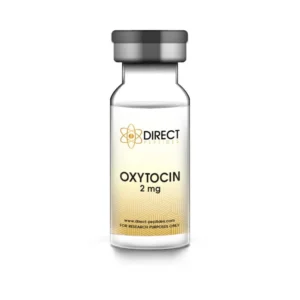Oxytocin, a nonapeptide hormone synthesized in the hypothalamus and secreted by the posterior pituitary gland, plays a crucial role in a variety of physiological and pathological processes.
Oxytocin has been extensively studied for its role in social bonding, sexual reproduction, childbirth, and the period after childbirth. It’s often referred to as the “love hormone” or the “bonding hormone” because of its involvement in trust and emotional attachment.
Given its diverse physiological roles, research suggests oxytocin has potential therapeutic applications in conditions like autism spectrum disorder (ASD), schizophrenia, and anxiety disorders. For instance, several studies have shown that intranasal administration of oxytocin can enhance social cognition and social skills in individuals with ASD.
Showing all 3 results



SALE
[1] https://pubmed.ncbi.nlm.nih.gov/20047458/
[2] https://www.ncbi.nlm.nih.gov/ pmc/articles/PMC4290532/
[3] https://pubmed.ncbi.nlm.nih.gov/21981277/
[4] https://pubmed.ncbi.nlm.nih.gov/26208744/
[5] https://www.ncbi.nlm.nih.gov/ pmc/articles/PMC4815424/
[6] https://pubmed.ncbi.nlm.nih.gov/22141469/
[7] https://pubmed.ncbi.nlm.nih.gov/24979580/
[8] https://www.ncbi.nlm.nih.gov/pmc/articles/PMC5868755/
ALL CONTENT AND PRODUCT INFORMATION AVAILABLE ON THIS WEBSITE IS FOR EDUCATIONAL PURPOSES ONLY.
DISCLAIMER: These products are intended solely as a research chemical only. This classification allows for their use only for research development and laboratory studies. The information available on our Direct Peptides website: https://new-zealand.direct-peptides.com is provided for educational purposes only. These products are not for human or animal use or consumption in any manner. Handling of these products should be limited to suitably qualified professionals. They are not to be classified as a drug, food, cosmetic, or medicinal product and must not be mislabelled or used as such.

401 N. Mills Ave, Ste B, Orlando, FL 32803, United States
